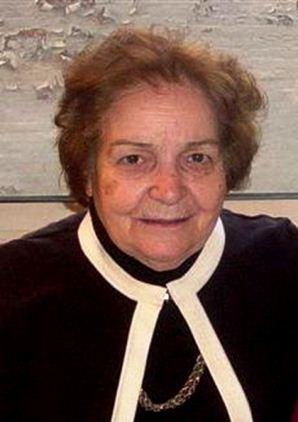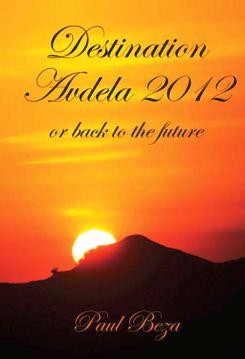Community News
Just as we were going to press, we learned that Aromanian tennis prodigy Simona Halep, ranked number 19 in the world, who recently won the Open in New Haven and held on till the fourth round in the US Open, had been defeated by the Italian Flavia Pennetta. Halep is from Constantsa, Romania, and is well-known in the Aromanian community there. Her father Stere Halep runs a cheese and milk factory in Romania. Congratulations to Simona on a great year and stay tuned, everyone – we are sure to hear much more about this amazing young woman in the years ahead.
The Society notes with sadness the passing of Evdochia Mihai, President of the Society Perivolea, in November 2012. She was successful in bringing together Vlachs whose families hailed from the well-known village of Perivoli in Greece, and to the end of her life she kept the Society running and holding dinner-dances regularly. Memory eternal!

Although Yiddish has been losing ground steadily to Hebrew, the national language of the state of Israel, many are fighting to preserve this colorful language. Chief among them, at least in the US, is the Forward (Forverts in Yiddish). Its latest stake in the ground in behalf of Yiddish includes a revamped Yiddish web site as well as using social media, podcasts, and blogs to reach a new generation of potential Yiddish speakers. Visit them at http://forward.com/ to see some of their innovations.
We recently read a book entitled Destination Avdela 2012, or back to the future by Paul Beza, a British national who was born in Romania of Aromanian parents. It is an engaging travelogue of the author’s trip back to Avdhela, Greece, his parents’ ancestral village. “Originally I had just started jotting down a few notes for my own records and for my daughters and grandchildren,” writes the author. “I realised that just plain travel notes would not mean much to younger generations, so I started adding biographical and historical details.” Beza adds, “The hidden message of the book is that the smaller, endangered nations and cultures, in the Balkans and elsewhere in Europe, need protection and encouragement to move from the status of ‘endangered’ to ‘flourishing’.” We enjoyed the book and recommend it to all.



Responses